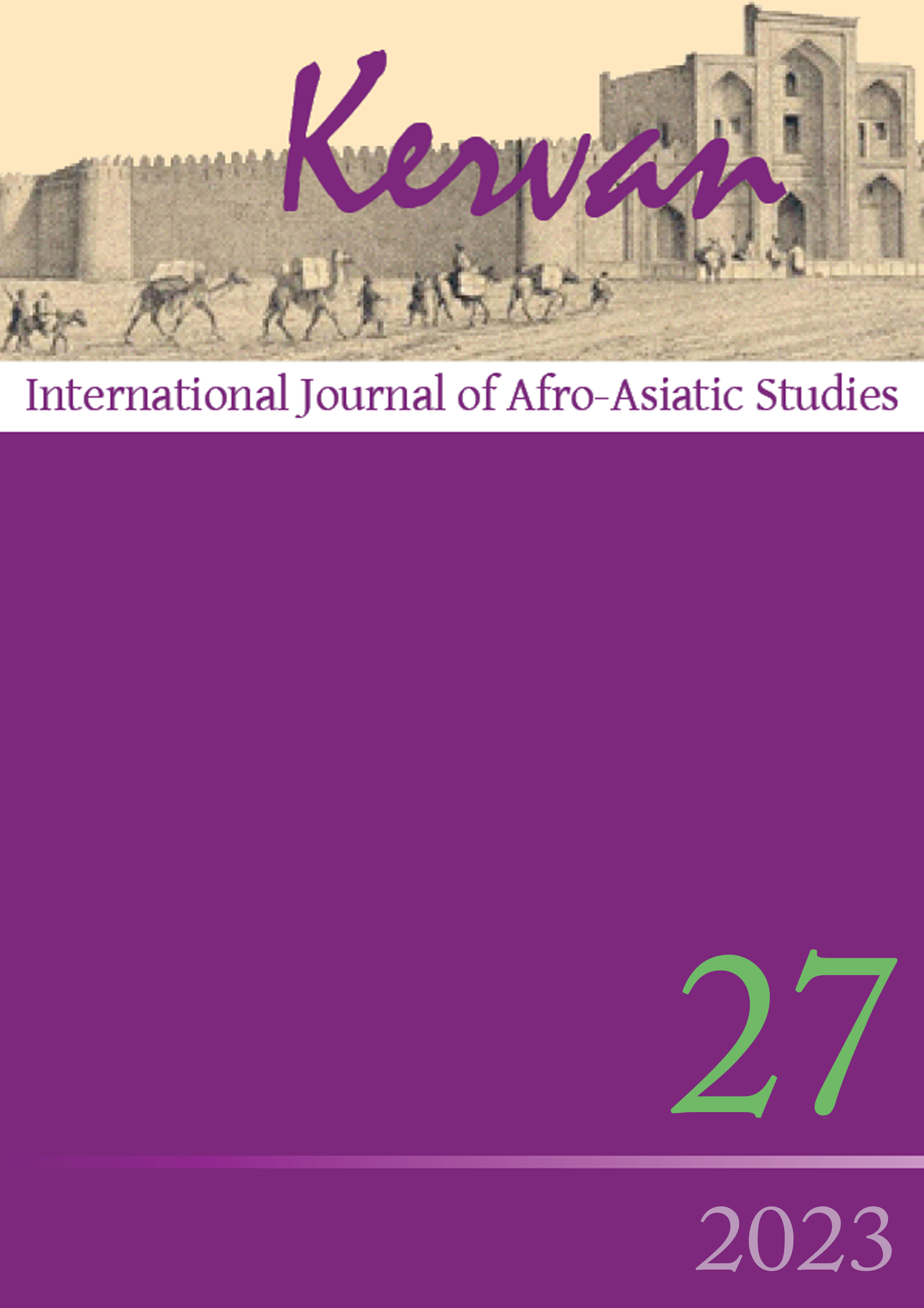ʿArafāt’s speech at the United Nations (1974): A Perelmanian reading of the text rhetoric
DOI:
https://doi.org/10.13135/1825-263X/7729Abstract
On November 22nd, 1974, the United Nations General Assembly promulgated resolutions No. 3236 and No. 3237, recognizing the political, cultural, and socio-economic rights of the Palestinian people, and formalizing the PLO’s participation in the General Assembly as an observer. These important resolutions were issued following the historic speech given by the President of the Palestine Liberation Organization, Yāsir ʿArafāt, on November 13th, 1974, before the United Nations General Assembly. This paper consists in the rhetorical and linguistic analysis of the main argumentative strategies employed by the Palestinian leader in his speech to achieve his perlocutionary goals. Specifically, the analysis is carried out on the basis of the methodological tools developed by Perelman and Olbrecths-Tyteca in The New Rhetoric: A Treatise on Argumentation (1969). The Perelmanian tools are applied to ʿArafāt’s Arabic speech in order to determine the rhetorical techniques employed to build the audience’s agreement and to persuade them about the necessity to accommodate his people’s requests. From this research emerges the in-depth knowledge that the speaker has of his audience, addressing, from time to time, a particular or a universal audience, in an attempt to reach an agreement that is as broad as possible. For this reason, the speaker carefully chooses the language through which to convey his message, excluding the Islamic formulas and lexicon, which usually characterize his speeches. Furthermore, the agreement with the public is established through the repeated reference to universal values, which allow him to place the Palestinian question in a framework shared by the audience. Finally, the present study illustrates the copious argumentative strategies that ʿArafāt employs to generate a change of perspective on the Palestinian question, facilitating the process of persuasion.
Downloads
Downloads
Published
Issue
Section
License
Gli autori che pubblicano su Kervan accettano le seguenti condizioni:
- Gli autori mantengono i diritti sulla loro opera e cedono alla rivista il diritto di prima pubblicazione dell'opera, contemporaneamente licenziata sotto una Licenza Creative Commons - Attribuzione che permette ad altri di condividere l'opera indicando la paternità intellettuale e la prima pubblicazione su questa rivista.
- Gli autori possono aderire ad altri accordi di licenza non esclusiva per la distribuzione della versione dell'opera pubblicata (es. depositarla in un archivio istituzionale o pubblicarla in una monografia), a patto di indicare che la prima pubblicazione è avvenuta su questa rivista.


 The articles that have appeared on Kervan since 2016 are rated as Class A in the system of National Scientific Qualification (ASN, disciplines 10/N1 and 10/N3).
The articles that have appeared on Kervan since 2016 are rated as Class A in the system of National Scientific Qualification (ASN, disciplines 10/N1 and 10/N3). The journal has been approved for inclusion in DOAJ. The DOAJ listing of the journal is available at
The journal has been approved for inclusion in DOAJ. The DOAJ listing of the journal is available at  The journal has been approved for inclusion in ERIH PLUS. The ERIH PLUS listing of the journal is available at
The journal has been approved for inclusion in ERIH PLUS. The ERIH PLUS listing of the journal is available at  Kervan was just accepted for indexing in SCOPUS. This important milestone ensures that articles published in Kervan are easily found when searching for library, archives and Information science and it enables Kervan authors to keep track of how often their article has been cited by others.
Kervan was just accepted for indexing in SCOPUS. This important milestone ensures that articles published in Kervan are easily found when searching for library, archives and Information science and it enables Kervan authors to keep track of how often their article has been cited by others.

